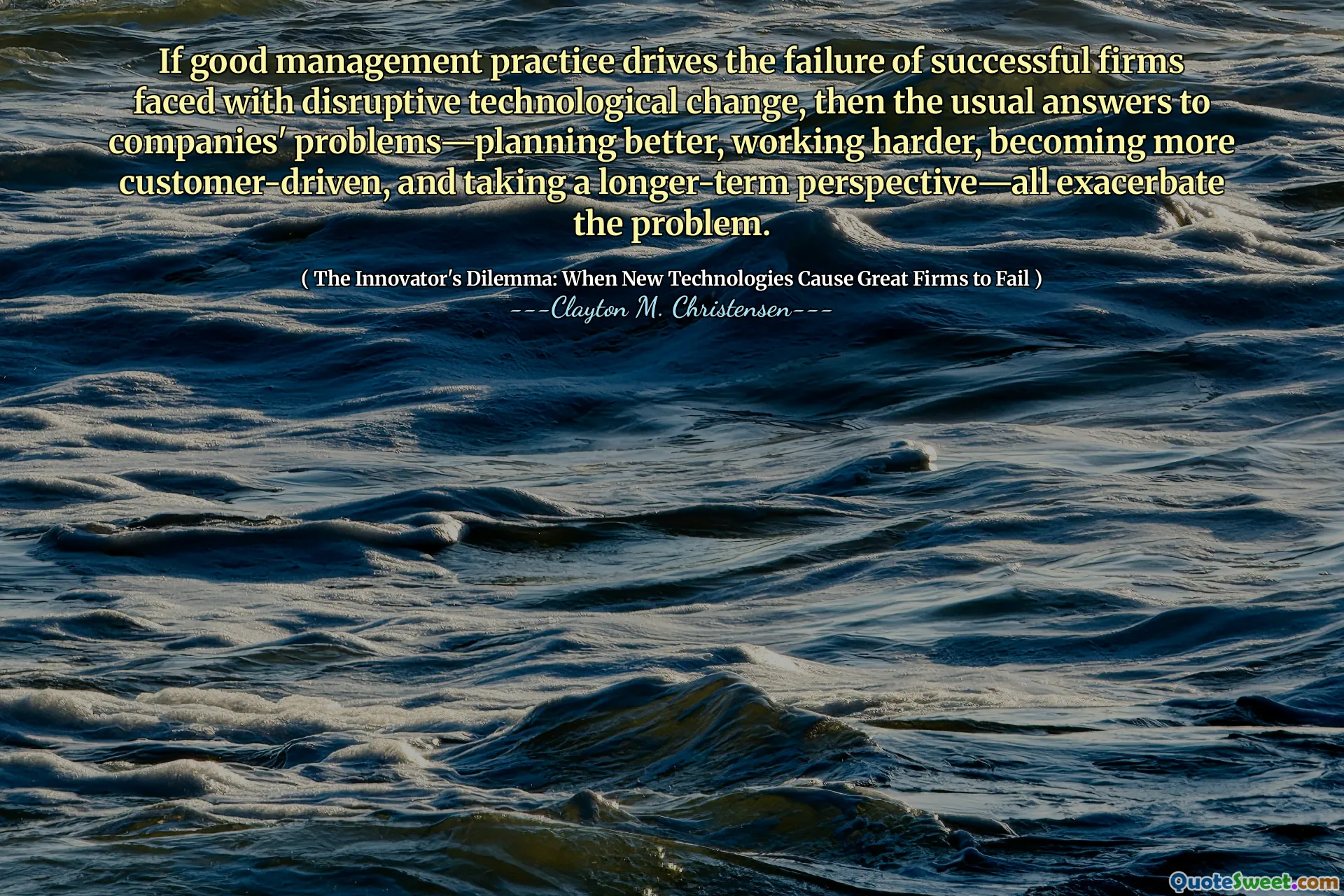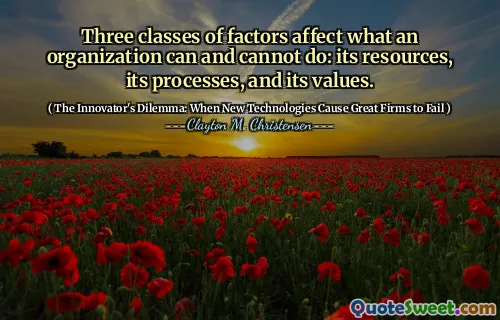
If good management practice drives the failure of successful firms faced with disruptive technological change, then the usual answers to companies' problems—planning better, working harder, becoming more customer-driven, and taking a longer-term perspective—all exacerbate the problem.
This quote from Clayton M. Christensen challenges the conventional wisdom about management and business success, particularly in the context of disruptive innovation. At first glance, it is counterintuitive: good management practices are typically seen as the cornerstone of a thriving business. However, Christensen argues that the very strategies that make firms successful in stable environments can, paradoxically, lead to their downfall when disruptive technologies emerge.
This highlights a critical tension between managing for current customer needs and the willingness to embrace disruptive change that initially may not appear profitable or aligned with existing market demands. Traditional practices like meticulous planning and a strong focus on current customers and long-term perspectives might reinforce a company's existing strengths, but they can blind it to emerging threats that do not fit the established metrics of success. In such scenarios, companies risk becoming trapped by their own successes, unable to pivot or take risks on disruptive innovations that seem to promise less immediate return but have the potential to reshape industries.
Christensen’s insight is a call for a deeper understanding of when and how standard management practices should be questioned or adapted. It suggests that companies need dual-track strategies or organizational ambidexterity to foster innovation while maintaining their core operations. This thinking has profound implications for leaders, urging them to cultivate flexibility, experimentation, and openness to change rather than relying solely on established management doctrines.
In summary, this quote captures a fundamental paradox at the heart of innovation and business survival, urging a reconsideration of what 'good management' truly means in a rapidly evolving world.







